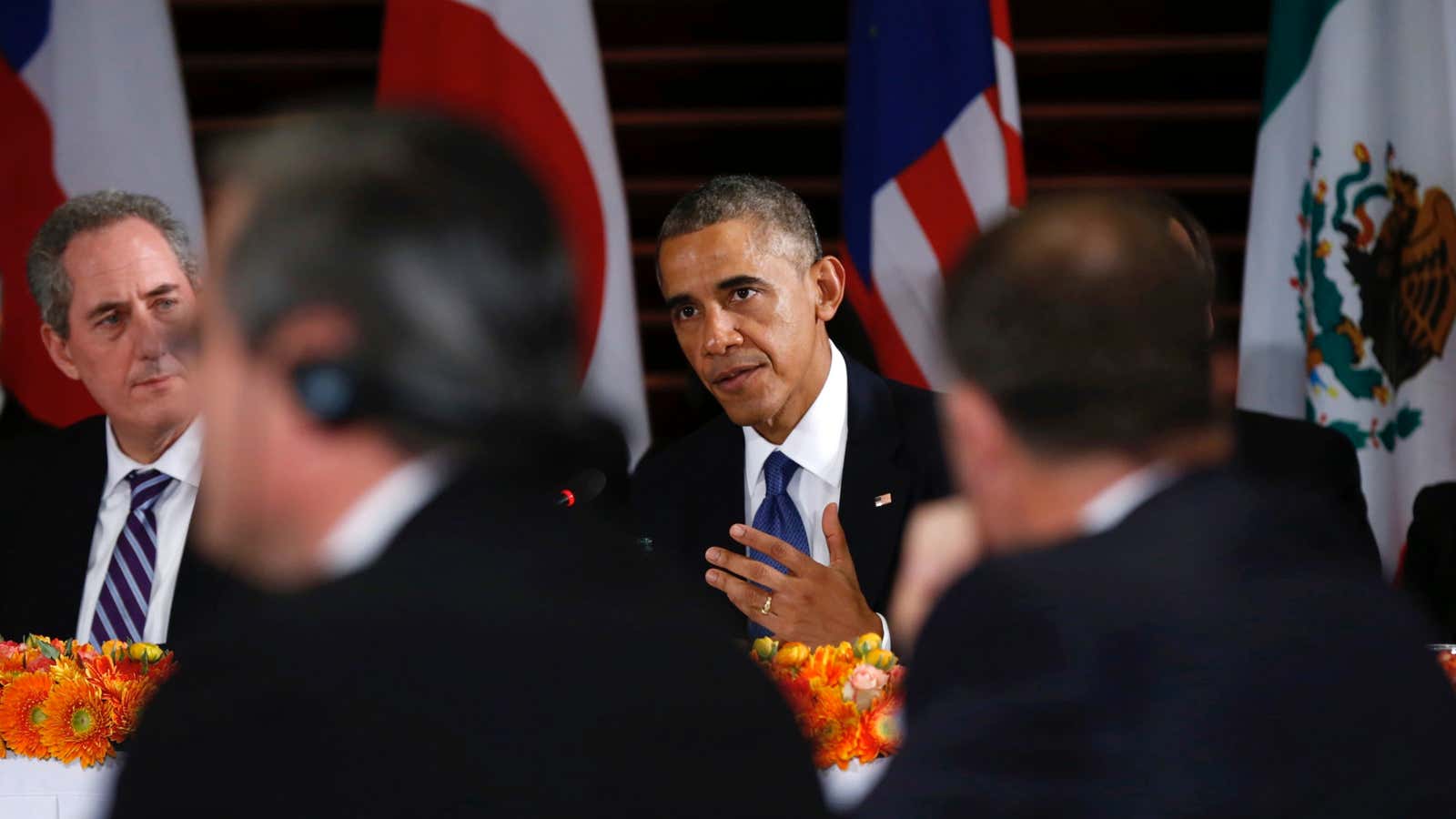One of the most notable aspects of the Trans-Pacific Partnership trade deal—currently under negotiations between 12 Pacific Rim nations—has been that it does not include China.
But wait. US president Barack Obama said in a June 3 radio interview that China has “put out feelers” about possibly joining the TPP. Taking questions from the US public radio show ”Marketplace,” Obama said, “Well, they’ve already started putting out feelers about the possibilities of them participating at some point… To us, to Jack Lew, the Treasury Secretary…”
Obama faces skepticism from his own party about the TPP, which many contend will hurt US wages and jobs. He’s on a media blitz trying to get the massive trade deal through Congress.
A key question about the TPP has been how China would react to the deal, which calls all nations to agree to environmental, intellectual property, and labor standards. Said Obama:
The fact is that if we have 11 of the leading economies in the Asia-Pacific region, who have agreed to enforceable labor standards, enforceable environmental standards, strong I.P. protections, non-discrimination against foreign firms that are operating access to those markets, reduced tariffs, then China is going to have to at least take those international norms into account. And, we are still pursuing strong bilateral economic relations with China, we still pressure them around issues like currency, or the subsidies that they may be engaged in, or theft of intellectual property… So, part of what we’re doing here is we’re leveling up, as opposed to a race to the bottom, which means no labor protections, no environmental protections. We want to make sure that there is a level playing field that’s going to allow us to be successful, and will help to shape trade and commerce, not just in the region, but in the world for a long time to come.
While China seemed to perceive the TPP as a threat a few years ago, more recently it’s become quiet on the issue, as reported in late April by The New York Times. China’s vice finance minister Zhu Guangyao said the pact would be “incomplete” without China, and hinted that China might want to participate someday. ”As China becomes more open,” he said, “it’s very important for us to be integrated into the global trade system with a high standard.”
